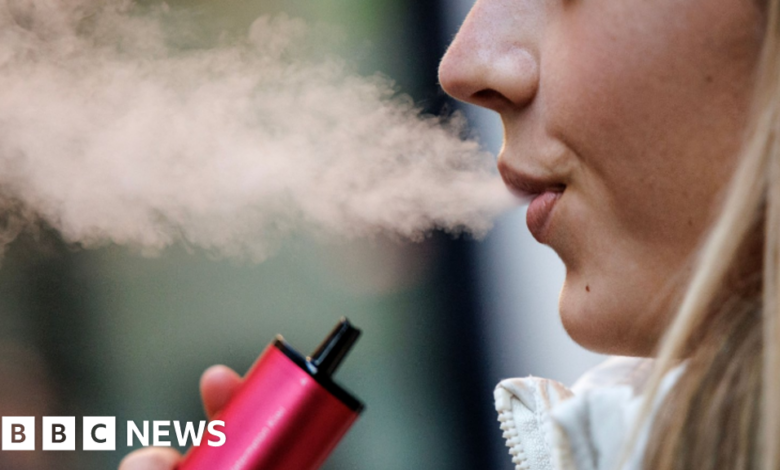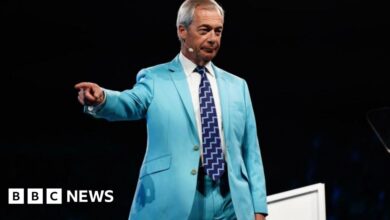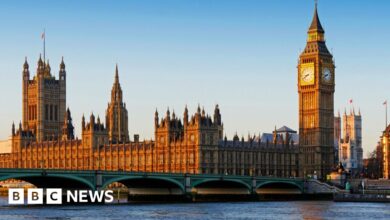Vaping tax and tobacco duty rises set out in Rachel Reeves’ Budget

The cost of vaping and smoking will increase following tax rises announced in Chancellor Rachel Reeves’ Budget.
A new tax on vapes of £2.20 per 10ml of e-cigarette liquid will kick in from October 2026.
That will be accompanied by an equivalent increase of £2.20 per 100 cigarettes in tobacco duty to “maintain the financial incentive to switch from tobacco to vaping”.
Reeves also set out immediate above-inflation increases of 2% on tobacco and 10% for hand-rolled tobacco.
On alcohol duties, she said that, from February 2025, there would be a 1.7% reduction in draught beer duty, to shave “a penny off a pint in the pub”.
However, rates on non-draught products, such as wine and spirits, will rise by the higher RPI measure of inflation.
Defending the rise, the chancellor said “two-thirds of alcoholic drinks sold in pubs are served on draught”.
The UK Spirits Alliance (UKSA) called the hike a “kick in the teeth”, adding: “Today’s decision won’t stop thousands more pubs and distillers closing down.”
However, Katherine Severi of the Institute of Alcohol Studies welcomed the move saying it would “help narrow the widening gap in affordability between pub and supermarket alcohol”.
“There are both public health and economic reasons to move people back to drinking in pubs and not at home.”
In its last Budget before losing the election, the previous Conservative government said it wanted to introduce a vaping tax and set up a consultation on the changes.
The consultation said the tax aimed to make vaping “less accessible to young people and non-smokers while also raising revenue for funding vital public services like the NHS”.
It had proposed different levels of tax based on the amount of nicotine in the vaping liquid. However, Reeves has instead opted for a flat rate.
In its analysis of responses to the vaping consultation, the government said industry representatives and some public health bodies had opposed a three-tier structure, warning it could result in unintended consequences and create complex bureaucracy.
Head of the UK Vaping Industry Association John Dunne called the vape tax a “nonsensical move” that penalised people who used vapes as a method to give up smoking.
He said: “Some three million adults are former smokers thanks to vaping, which is strongly evidenced as the most effective way to quit conventional cigarettes, saving the NHS millions of pounds in treating patients with smoking related conditions.”
The new Labour government had already said it wanted to stop vapes being branded to appeal to children, and has announced a ban on single-use vapes, due to come into effect in England in June 2025.
Ministers have also pledged to continue plans, set out by former Prime Minister Rishi Sunak, to ban people born in or after 2009 from buying cigarettes.
In a measure aimed at encouraging manufacturers to reduce sugar content in drinks, the Budget confirmed an increase in the sugar tax, officially called the Soft Drinks Industry Levy.
Milk-based drinks are currently exempt. However, the government has said this will now be reviewed.




